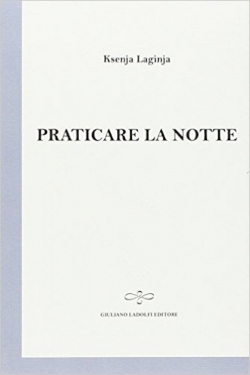Editorial
by Francesca Del Moro
After all, the idea of a possible extra-terrestrial contact can be reconducted to a divine tension. It involves the human desire of going beyond the boundaries and dreaming of alternative worlds, led by the certainty that our planet cannot be the best place to live in. In these regards, the verses of modern resonance written by Leila Falà reflect a brutal sci-fi scene where the aliens reach our planet with the intent of correcting its faults, taking up the role of divine avengers specialised in retaliation practices. Through the visual power of his poem, Alessandro Silva foresees the Earth’s Apocalypse, which causes the extinction of the human kind and at the same time marks the beginning of a new genesis, where the turnover between humans and aliens is dictated by the Darwin law. The verses of Barbara Pumhosel and Giovanna Olivari, instead, picture a peaceful and sweet first meeting with extra-terrestrials, close to a love encounter: Barbara reveals the place of the rendezvous, while Giovanna dreams of being “taken” by a gentle figure made of light.
Curiosities and hatchings of a scientific apprenticeship II
di Alessandro Silva
There was a half-light eclipse of the moon
when Osorno moved the pillars and made
an oceanic crust sprout up
seven times higher than the earth.
Fitz-Roy was a whisper gushed
on the top of the mainmast,
the Beagle flying over upturned water,
(in his iron bird’s eyes the broken
diamond of the moon, as he watches).
– It has moved under our feet! – Fitz-Roy
screamed. It is not of terrestrial race
that shadow of a fluid body bent
over the construction of volcanic buildings
or forging different plates of beaks.
From the moon Darwin pulled the deep
cosmos and strange species of prokaryotes
of Martian origin. It didn’t grow up
any more in life in a uniquely terrestrial
form.
He said:
– Everything is going on through the elimination of the unsuitable –.
keep the promise
by Barbara Pumhösel
keep the promise
the last one
one more time
we had said it
let's meet
under the front
paws of the Centaur
I am here already waiting for you
there is the dark cloud, the Mimosa
every sudden sparkle
makes the hope visible
one more time though
not to the naked eye you won't be
late because there is no sign
here of Earth days
Visitor
di Giovanna Olivari
I had imagined him
out of the world
made of lightness
and light.
You entered me
deep inside
finding a body
and concreteness.
You didn’t know the shadow
and you learnt it
the shadow of the bodies
when they meet the light.
You entered me
deep inside
and in my shadows
you cast a light.
Aliens IV
di Leila Falà
Then came the aliens.
The serial talk show moralist
was still whispering about rights
about not giving bread to strangers
nor rest to those who want to die,
that you are entitled to be an objector
and who cares if women can’t have abortions.
Unlike Christ, the alien granted his wishes.
He turned him into a woman and made him pregnant forever with his drool.
Fruits were born from him all the time,
slimy and slushy and asking to be fed.
Praticare la notte
by Ksenja Laginja
“To enter into your own mind you need to be armed to the teeth.” The quote from Valéry inserted in the long epigraph enlightens us on this poem collection. “War”, “siege”, “surrender”: page after page, we come across a terminology belonging to the military world and recalling the militia of Giulio Greco’s afterword essay, with reference to the Book of Job. And again, we encounter “the invincible shield”, “razor-sharp” hands, bones as pieces of military equipment, wrapped around the chest like a rosary, joining ribs together. It’s not a coincidence that these bones are located where a shield should be, but they remain under our skin, ready to protect the heart, the lungs, shielding our emotions and our breaths, guarding the soul. The words – and poetry has the power to give words to the surrounding air, to voids and silences – can become blackened weapons, wild and harsh, ready to strike. While wandering in her mind (and she’ll come to a rest at some point), the poet pursues with firm resolution a condition of stability: we find a series of verbs hinting to steadiness (like stare and restare), references to the roots, hands in the pockets, the vertical posture, and the vertical movement as well, involving the ascent or the descent. The body is solid and ready to fight, it is plunged is a scenario made of sturdy elements, strong and compact: walls, rocks, stones and cliffs. It is represented like a body-ship, fighting to stay afloat in the mist of the storm, teaching to the breath how to survive underwater when the waves and the rocks are launching their assaults, the latter with their immobile threats of deadly injuries. The rocks are described as aguzze (sharp), with the recurring double zed, the sound of a cut. A neat and slow cut, which can be inflicted without moving, by applying the self-control typical of the martial arts. Actually, the verb praticare (practice), used in the title and in some verses, evokes these oriental disciplines: the practice is necessary to come into contact with our inner selves, to come to terms with our limits and our place in this world, with our relationships, the memories and the throwbacks, the voids, the unsaid good-byes. “They say we are determined by our actions” repeats Ksenja three times in one of her poems, a sentence that she will reject at the end, claiming our right to be something else, an incomplete circle, weak voices powered by a restless breath. Thanks to the abundance of darkness and void offered by the night, the poetry practice makes room in our soul, allowing us to question and getting to know ourselves, to strengthen our skills and be able to face life. The dialogue with the wind, which carries our name, our essence, is constantly going on, characterised by a deep respect towards the silence, because silence cannot kill us, it can only fill our void. Nonetheless, the poet takes further action: the practice can be used to escape the solitude (a word used with high frequency, sometime in the plural form) and merge with the other person. Therefore, this solid and firm poetry, these blunt and stripped-down verses, which avoid any redundancy and go straight to the point, find their strength in the hard ground and the inner voice, then reach out to the reader. As in the verses: I would like to be a door entryway path let you in at any time nourish the abyss in you to find myself. The pronoun you does not simply stand for the lover: the author welcomes also the reader. All the more, her verses leave space to other poets through meaningful epigraphs, as deep breath pauses that reinvigorate and harmonise the whole collection. These epigraphs are a tribute to the artistic community, as well as the poet’s written declaration of belonging, a community representing the highest human expression here analysed.
Ksenja Laginja
Praticare la notte
Ladolfi editore, 2015

